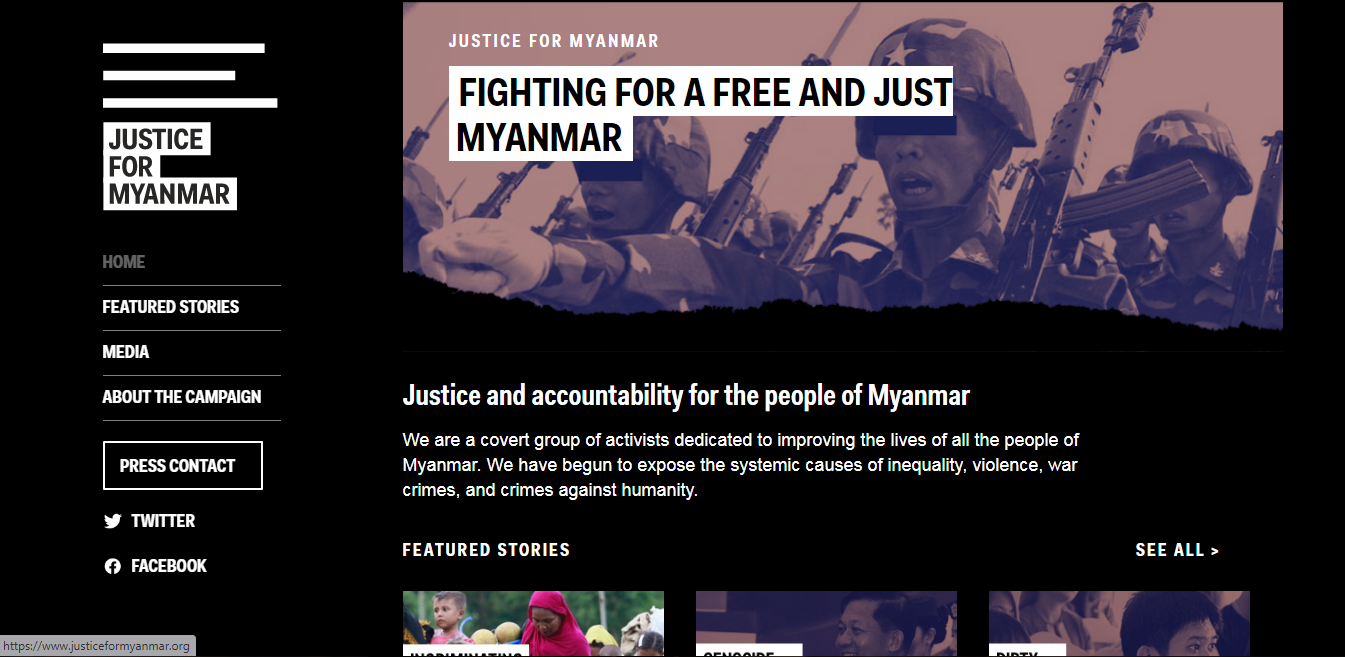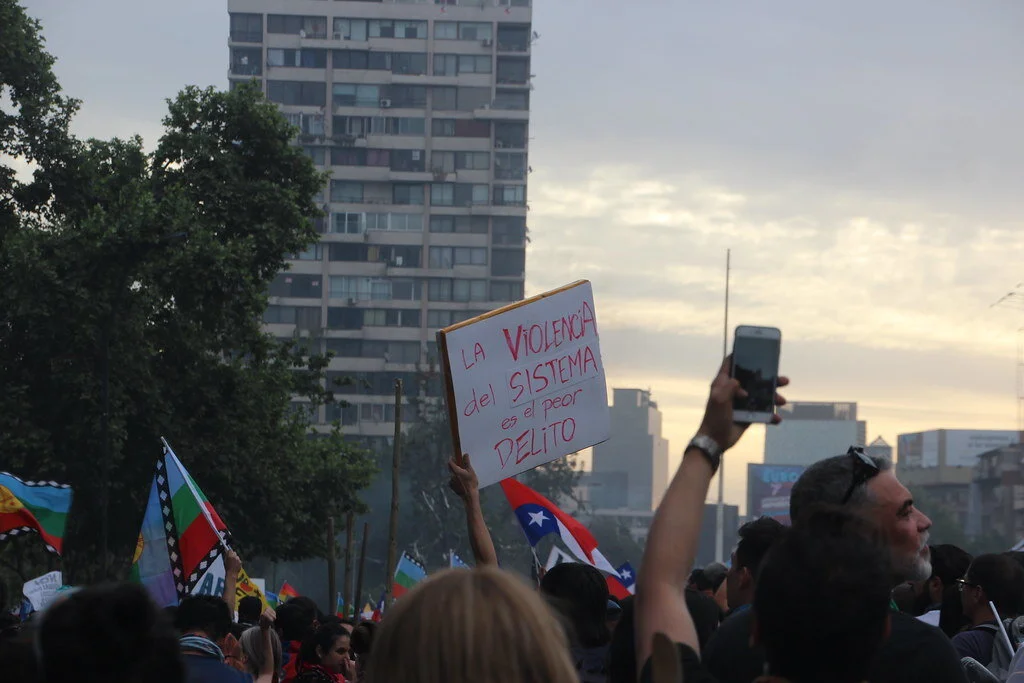The website for Justice for Myanmar, which is dedicated to exposing military corruption, was blocked by the country’s government for spreading fake news. Over 200 websites have been blocked in the past year.
Screenshot of the Justice for Myanmar homepage.
On Aug. 27, all mobile operators and service providers in Myanmar received a directive from the government to block the Justice for Myanmar website for purportedly spreading fake news. Justice for Myanmar was launched on April 28 by an anonymous group of activists aiming to expose military corruption and advocate for federal democracy and peace. Campaigning for Myanmar’s Nov. 8 general elections began a week after the shutdown, raising concerns that the government was attempting to silence scrutiny and criticism of the elections.
In May, Justice for Myanmar exposed that two top government officials were also directors of Myanmar Economic Holdings Company Limited, a military-owned company, leading to both officials’ resignations from its board. More recently, Justice for Myanmar revealed that a construction company under contract for the government has ties to Lt. Gen. Soe Htut. The site also published allegations that a medical company offering Food and Drug Administration approvals is owned by the family of Sr. Gen. Min Aung Hlaing.
The military controlled Myanmar for decades, until it was replaced by a civilian government in 2011. The current government is headed by Aung San Suu Kyi of the National League for Democracy (NLD), who serves as State Counsellor. She led the NLD to victory in 2015 during Myanmar’s first openly contested election in 25 years. Despite having a democratic ruler, Myanmar is not free from military rule. A 2008 constitutional provision still guarantees the military seats in parliament. One-quarter of parliamentary seats are held by the military, which also controls the country’s defense, border affairs and home affairs ministries.
Aung San Suu Kyi, once regarded as a prime example of a democratic leader, has been the target of international criticism in recent years for her handling of the Rohingya crisis and her persecution of media and activist groups.
In the past year, Aung San Suu Kyi’s government has blocked over 200 websites for allegedly spreading fake news, using Section 77 of the Telecommunications Law. The section allows action to stop the spread of misinformation. Myanmar’s government received criticism earlier this year for limiting press freedom and the flow of information during the pandemic by blocking news sites. The government also imposed an internet blackout in nine townships in the Rakhine and Chin states and in April 2020 ordered a mass blocking of the websites of ethnic media organizations. These actions, as well as the shutdown of the Justice for Myanmar website just a week before campaigning for the general elections began, have been causes for concern from the media, community organizations and rights groups.
Yadanar Maung, a Justice for Myanmar spokesperson, said in a recent press release that the group condemns “the Myanmar government’s attack on our right to freedom of expression and the people of Myanmar's right to information.” Telenor Myanmar, one of the service providers that received the directive to block the Justice for Myanmar site, has opened communication with the government to protest the blocking. A statement on Telenor Myanmar’s website urges the government “to increase transparency for the public” and asserts that the government’s directive does not respect the rights to freedom of expression or access to information.
Many groups and individuals, including James Rodehaver of the U.N. Human Rights Office, have called for reform of the Telecommunications Law.
Rachel Lynch
is a student at Sarah Lawrence College in Bronxville, NY currently taking a semester off. She plans to study Writing and Child Development. Rachel loves to travel and is inspired by the places she’s been and everywhere she wants to go. She hopes to educate people on social justice issues and the history and culture of travel destinations through her writing.












